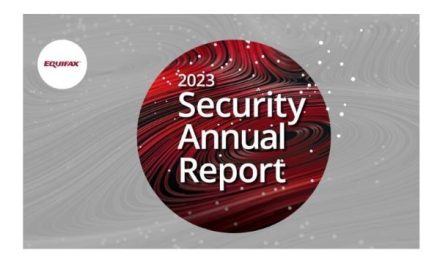Commenting on the latest Office for National Statistics (ONS) crime in England and Wales statistical bulletin, Josh Gunnell, TransUnion head of fraud & ID pre-sales said:
“The latest ONS crime figures reflect the evolving challenges of combatting financial fraud today, revealing a 12% increase in overall fraud in 2018 compared with the previous year, based on the Crime Survey for England and Wales (CSEW). This is driven in the main by consumer and retail fraud offences which increased significantly by 27% year-on-year
 “Consumers are spending more time and money shopping online, therefore, unsurprisingly, we’re seeing a related acceleration in cyber criminals targeting retail and consumer accounts. With over half the fraud incidents in 2018 thought to be cyber-related, it’s clear that many businesses still do not have adequate defences in place to mitigate the risks.
“Consumers are spending more time and money shopping online, therefore, unsurprisingly, we’re seeing a related acceleration in cyber criminals targeting retail and consumer accounts. With over half the fraud incidents in 2018 thought to be cyber-related, it’s clear that many businesses still do not have adequate defences in place to mitigate the risks.
“Regulatory change is coming, which could help address some of the current fraud challenges in the market, with the rollout of PSD2 due later this year, but the trends confirm a clear message – that fraudsters are evolving their tactics over time and will continue to exploit institutions that have the weakest links.
“2018 saw a huge rise in authorised push payment (APP) fraud, which has nearly doubled, up 93% over a 12-month period resulting in total losses of £354.3m, as reported by UK Finance. In these cases, the account holder has authorised the transaction themselves after being tricked by a fraudster, and as such they have no legal protection to recover the loss.
“This rise, I suspect, has in part been observed because of the heightened awareness of this type of scam, and therefore an increased likelihood of reporting it compared to the previous year, when it was little known and some consumers were perhaps embarrassed to admit they’d been duped.
“In addition to the financial losses, APP fraud presents a reputational challenge within the industry. We’ve seen banks and financial service providers that we work with implement a variety of changes in payment screens to help customers avoid scams, as well as conducting social media and marketing campaigns to ensure their customers rightly question suspicious activity and don’t fall prey to the kind of spoofing that is becoming commonplace. That said, despite greater consumer awareness of methods employed by criminals, there should continue to be more education provided to prevent customers falling prey to ever-more sophisticated attacks.
 “The key message from this bulletin is that fraud is not going away. Businesses need to be continually enhancing their security with additional checks to complement their existing processes. Some institutions have already implemented more rigorous transaction processes to help reduce risk, and this is something that needs to be adopted more widely, alongside ongoing due diligence checks, to help ensure customers can make online payments as safely as possible.”
“The key message from this bulletin is that fraud is not going away. Businesses need to be continually enhancing their security with additional checks to complement their existing processes. Some institutions have already implemented more rigorous transaction processes to help reduce risk, and this is something that needs to be adopted more widely, alongside ongoing due diligence checks, to help ensure customers can make online payments as safely as possible.”
Source: TransUnion Press Release


























